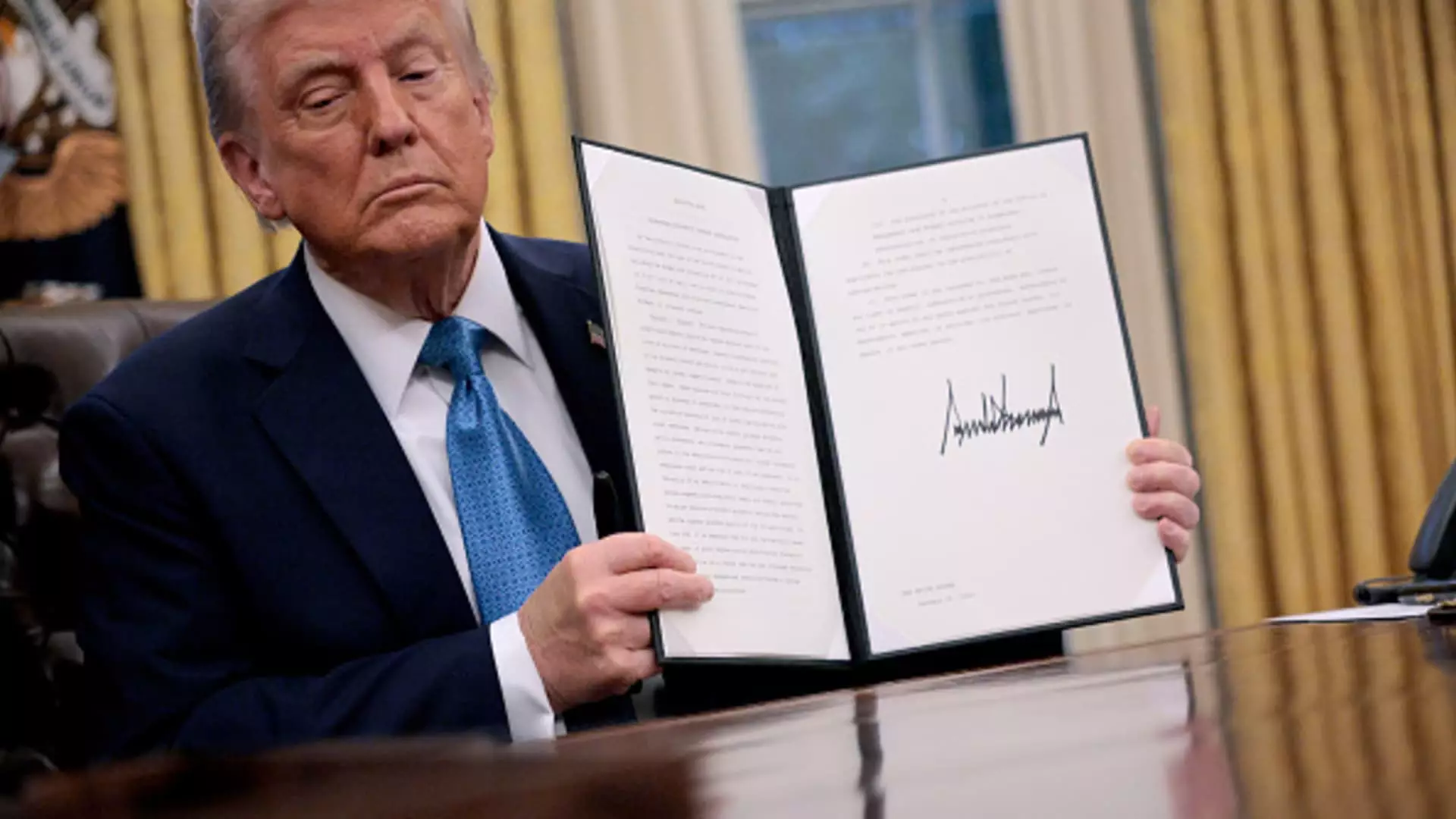As recent developments in U.S. trade policy unfold, the reverberations are being felt across financial markets, particularly within the stock exchange. Following President Donald Trump’s announcement of a robust tariff strategy on imports from Mexico, Canada, and China, the U.S. stock market experienced a significant downturn on Monday. This surge in tariffs, aimed at curbing what the administration views as unfair trading practices, threatens not only individual sectors but also casts a shadow over economic stability.
On Saturday, President Trump implemented a sweeping 25% tariff on goods imported from Mexico and Canada, alongside a 10% tariff that directly hits imports from China. These tariffs are indicative of a broader strategy that seems poised to ignite a global trade skirmish. However, on Monday, a slight reprieve was noted as Trump announced a one-month pause on the Mexico tariffs. This pause comes in light of an agreement with Mexican President Claudia Sheinbaum, who committed to deploying 10,000 troops to the U.S.-Mexico border to tackle drug trafficking. The development raises questions about how political dealings can influence market dynamics.
Despite the temporary relief in the context of Mexican tariffs, the pressure on the European Union has intensified, with Trump threatening additional tariffs in that direction as well. This suggests a landscape of uncertainty that businesses must navigate, potentially leading to widespread disruptions in supply chains and investor sentiment.
The steel casing surrounding the automotive industry is particularly vulnerable in the wake of the newly established tariffs. Major players like General Motors, Ford, and Stellantis could face challenging times ahead. Given how integral Canadian and Mexican manufacturing is to their production process, these companies may have to rethink supply chain strategies. The pressure to shift production back to domestic factories may arise, which could introduce further operational costs and delays.
Moreover, the beverage sector is already feeling the impact. Constellation Brands, as a major importer of alcoholic beverages from Mexico, has witnessed a notable decline in stock prices as investors react to the potential for higher import costs. Canada’s threat to remove American alcohol from state-run liquor stores poses an additional risk that could curtail sales significantly.
In a similar vein, the restaurant industry, particularly chains like Chipotle Mexican Grill, will likely deal with increased prices on staples like avocados, which are primarily sourced from Mexico. Such price increases could squeeze margins and affect consumer pricing strategies, leading to decreased patronage amid rising costs.
Discount retailers are also on shaky ground. Retailers such as Five Below and Dollar General often depend on affordable imports from China for their merchandise. In a retail landscape where lower prices often equate to competitive advantage, these tariffs could alter pricing strategies and consumer behaviors significantly. Moreover, brands like Nike and Lululemon, which are heavily reliant on Chinese textiles, might see increased production costs that could ripple through to average consumers.
The implications extend beyond individual firms and touch on larger economic dynamics. As corporate earnings face pressure from these tariff impositions, analysts at Goldman Sachs have cautioned of a potential 5% drop in U.S. stocks. Such predictions reflect a broader concern over how the interplay of trade policy and corporate profitability could influence market trends in the near future.
The ongoing tariff saga underscores the delicate balance between trade, corporate health, and stock market stability. As various sectors brace for potential fallout, the financial community remains vigilant. While some industries are quick to adapt to changing regulations, others may struggle under the weight of new economic pressures. The delay in certain tariffs may bring temporary relief but the overall atmosphere remains one of uncertainty and caution, hinting at the likelihood of more waves as international trade negotiations continue to unfold. As businesses evaluate their futures in this turbulent environment, the effects of these tariffs may resonate well beyond the immediate economic landscape, possibly reshaping relationships with global trading partners for years to come.

